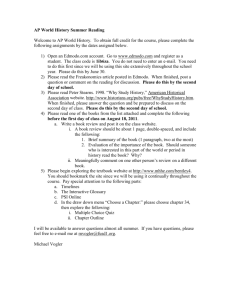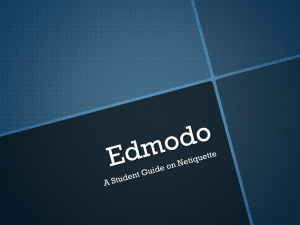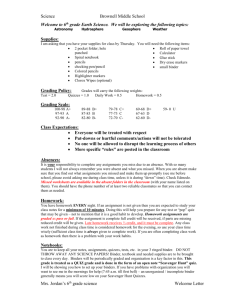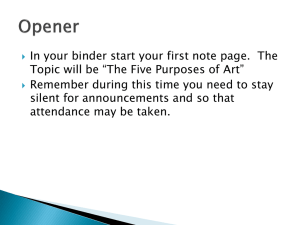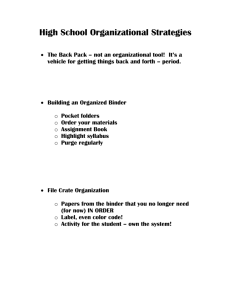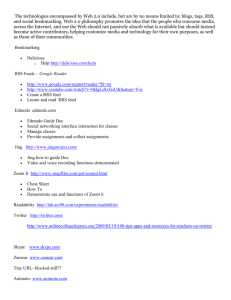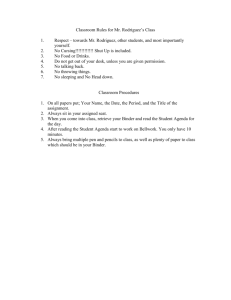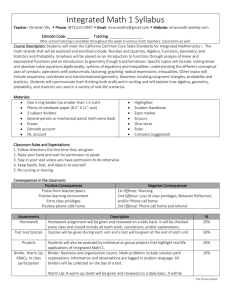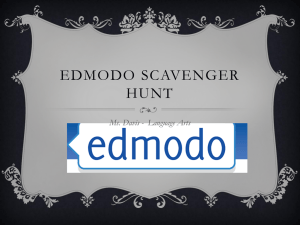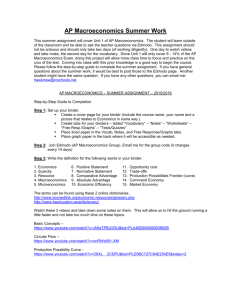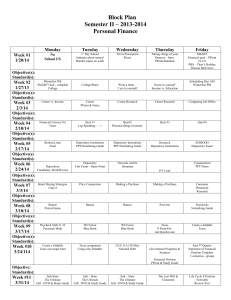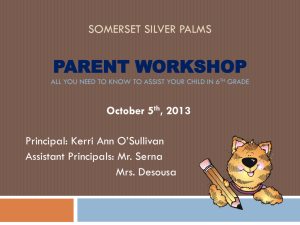AP World History Summer Reading
advertisement
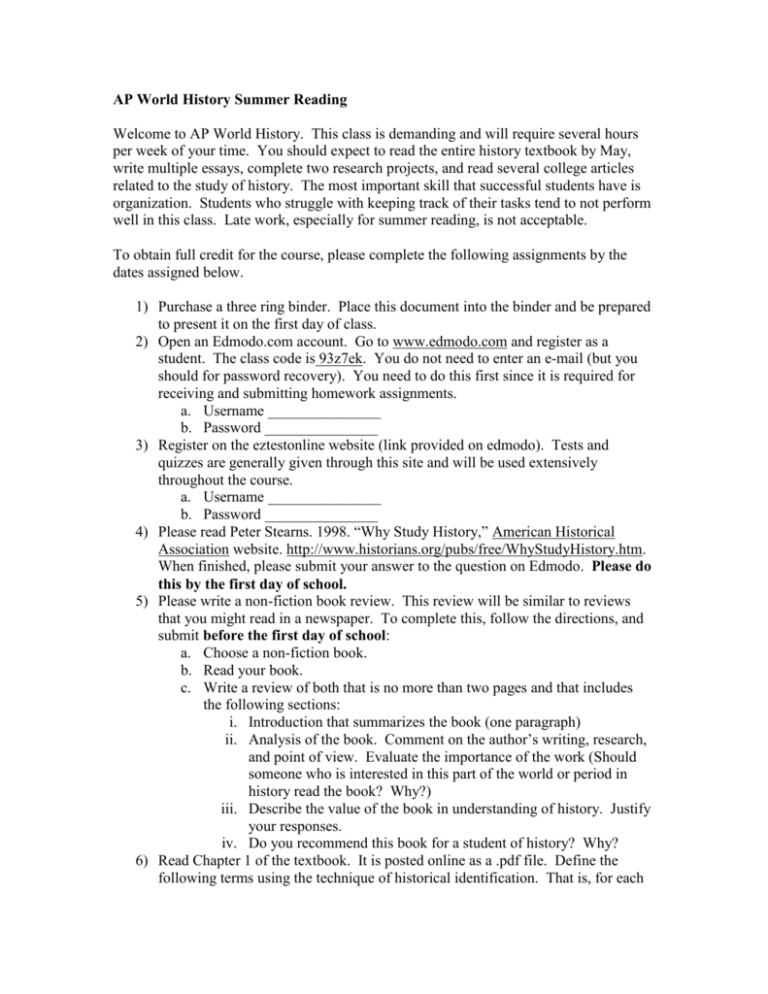
AP World History Summer Reading Welcome to AP World History. This class is demanding and will require several hours per week of your time. You should expect to read the entire history textbook by May, write multiple essays, complete two research projects, and read several college articles related to the study of history. The most important skill that successful students have is organization. Students who struggle with keeping track of their tasks tend to not perform well in this class. Late work, especially for summer reading, is not acceptable. To obtain full credit for the course, please complete the following assignments by the dates assigned below. 1) Purchase a three ring binder. Place this document into the binder and be prepared to present it on the first day of class. 2) Open an Edmodo.com account. Go to www.edmodo.com and register as a student. The class code is 93z7ek. You do not need to enter an e-mail (but you should for password recovery). You need to do this first since it is required for receiving and submitting homework assignments. a. Username _______________ b. Password _______________ 3) Register on the eztestonline website (link provided on edmodo). Tests and quizzes are generally given through this site and will be used extensively throughout the course. a. Username _______________ b. Password _______________ 4) Please read Peter Stearns. 1998. “Why Study History,” American Historical Association website. http://www.historians.org/pubs/free/WhyStudyHistory.htm. When finished, please submit your answer to the question on Edmodo. Please do this by the first day of school. 5) Please write a non-fiction book review. This review will be similar to reviews that you might read in a newspaper. To complete this, follow the directions, and submit before the first day of school: a. Choose a non-fiction book. b. Read your book. c. Write a review of both that is no more than two pages and that includes the following sections: i. Introduction that summarizes the book (one paragraph) ii. Analysis of the book. Comment on the author’s writing, research, and point of view. Evaluate the importance of the work (Should someone who is interested in this part of the world or period in history read the book? Why?) iii. Describe the value of the book in understanding of history. Justify your responses. iv. Do you recommend this book for a student of history? Why? 6) Read Chapter 1 of the textbook. It is posted online as a .pdf file. Define the following terms using the technique of historical identification. That is, for each term, list WHO was involved, WHAT happened, WHEN it happened, WHERE it happened, and WHY it is important. The why part is not found in the book. (I did hunter/gatherer for you). Print these and place them in your binder for display on the first day of class. a. Hunter/gatherer i. WHO: Paleolithic peoples ii. WHAT: the process of hunting for animals and gathering plants for food. iii. WHEN: Before 6000 and 12,000 years ago. iv. WHERE: Worldwide (esp. North America, Europe, and Asia) v. WHY: This was the way in which people obtained food for thousands of years. b. Paleolithic c. Chinook d. Venus figurines e. Cave paintings f. Neolithic g. Agricultural revolution h. Domestication of animals i. Agriculture j. Slash and burn k. Jericho l. Specialization of labor m. Prehistoric craft industry n. Social class/distinction o. Tigris and Euphrates 7) Please begin exploring the textbook website at http://www.mhhe.com/bentley4. You should bookmark the site since we will be using it continually throughout the course. Pay special attention to the following parts: a. Timelines b. The Interactive Glossary c. PSI Online d. In the draw down menu “Choose a Chapter:” please choose chapter 1, then find, print, and place in your binder the following: i. Chapter 1 Outline I will be available to answer questions almost all summer. If you have questions, please feel free to e-mail me at mvogler@fusd1.org. These assignments are all due on or before the first day of school. Excuses, with the exception of serious illness or accident, will not be accepted. Michael Vogler Summer Reading List The following is a list of possible summer reading books. You may choose any of the books on this list to read OR you may receive instructor approval for another book prior to reading and writing your review. Please be aware that some of the books on this list may be graphic and that I strongly suggest that you review the books ahead of time (books that I have read and believe may fit this description are marked with a *). Books marked with a + can be obtained from Mr. Vogler for check-out. Synopses of each book can be found at www.goodreads.com. Medieval and Ancient History (Until 1500) +Eleanor of Acquitaine by Alison Weir +Joan of Arc in Her Own Words by Willard Trask Renaissance and Enlightenment (1500-1900) +The Life of Elizabeth I by Alison Weir Narrative of the Life of Frederick Douglass by Frederick Douglass +Six Wives: The Queens of Henry VIII by David Starkey Modern History (1900-Today) Fallen Leaves: Memoirs of a Vietnamese Woman from 1940-1975 by Nguyen Thi Thu-Lam, Thi T. Nguyen, Sandra Christenson, Edith Kreisler The File by Timothy Garton Ash +Honeymoon in Purdah by Alison Wearing +My Forbidden Face by Latifa +Princess by Jean Sasson* Gods Bits of Wood* by Sembene Ousmane
